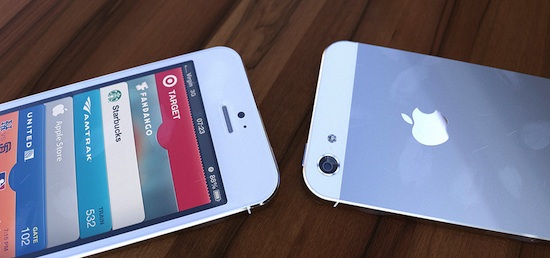It looks like Tim Cook wasn’t joking underscoring Apple would “double down on secrecy” during his fireside chat with Walt Mossberg and Kara Swisher at the D10: All Things D conference. As noted by TUAW, the latest beta of iOS 6 lacks certain references to future Apple devices that have long been the staple of the rumor mill’s crystal ball peering. Not like this changes anything, mind you…
The USBDeviceConfiguration.plist file in iOS is typically the place to look for hints as it contains a bunch of string references to current and unreleased Apple hardware.
For example, in iOS 5 betas an “iPhone4,1” reference alluded to an unreleased iPhone model, a major revision, which later became known as the iPhone 4S. The USBDeviceConfiguration.plist file is still there, Apple just removed all traces of unknown hardware.
Last December, Apple played a practical joke on eagle-eyed journalists who relentlessly comb through the closely-watched configuration file. Jokers as they are, Apple planted dozens of references to fake products, like “iPad10,1”, “iPhone11,3”, “iPod11,1” and “AppleTV8,3”.
Of course, Apple’s latest move won’t stop people from trying. More importantly, hints to unreleased hardware can still be found in other locations in iOS, for those who know where to look.
If anything, this is Apple’s way of telling us that they’re serious about not helping the media guesstimate what they’re working on.
Why double down on secrecy?
Apple may remove evidence of upcoming products from iOS code as much as it wants, but this won’t stop people from envisioning what the next iPhone could look like.
For starters, it kills the surprise factor.
A good example is the new iOS 6 Maps app which completely leaked out ahead of the WWDC announcement, as did a number of other headline features.
Secondly, rumors – especially if fake – provide Apple with tons of free coverage otherwise worth tens of millions of dollars.
Unfortunately for Apple, removing code references does nothing: credible publications have their moles at 1 Infinite Loop and Cupertino will have to significantly strengthen their CIA-grade internal security measures.
A good example of this is 9to5Mac, a well-connected publication with deeply entrenched sources where I used to work as News Editor prior to my iDB gig.
As noted by Businessweek, 9to5Mac (in spite of hate talk) pretty much leaked everything there was to leak about Apple’s keynote announcements, completely ruining the surprise factor.
Too much rumors and guessing work can affect Apple’s bottom line.
Take last year’s wild speculation concerning the iPhone 5 which called for an all-new form factor and summer introduction. These baseless stories, however, did manage to convince a bunch of people to withhold their planned purchases, causing a notable dip in September quarter iPhone sales.
Even CEO Tim Cook said as much in a conference call with investors.
In a repeat of 2011, analysts now warn that crazy rumors and nonsensical reporting surrounding the next iPhone could also impact summer sales.
So why is iDB covering this rumor biz?
Firstly, most of our surveyed readers voted for rumor coverage in a poll.
Secondly, without rumors there would be little to report on in terms of factual news as Apple never announces or comments on unreleased products.
And finally, some rumors prove true and as such are an integral part of any comprehensive coverage.
Without rumors, tech reporting would be a lot less fun.
Plus, we do our best to separate rumors from facts and we trust our readers can digest all the pieces of information we present and form their own opinion.
What do you think, is it possible to really obscure all pieces of valid evidence from iOS betas?

